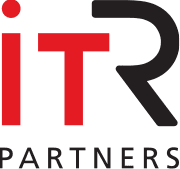The Employee Value Proposition (EVP) is an essential part of talent attraction. If you want the best people, you’re going to need to convince them that your company is an incredible place to work.
A strong EVP is particularly critical for employers who can’t necessarily offer the highest salaries. Not everyone is motivated by money, but it’s always going to be a powerful influencer. But if you can effectively ‘sell’ your employer brand, you have a better chance of winning over candidates. You’ll have an edge over your competitors, which should help you to attract the best talent.
A good EVP can also help you retain your best people. Get it right and you can build and continually reinforce staff loyalty, as well as converting employees into ambassadors for your brand.
“What’s in it for me?” – The question at the heart of the Employee Value Proposition
This is what every job hunter is asking themselves when they browse jobs boards and scan through listings. Before you can start writing job descriptions and advertising roles, you need to have a persuasive answer ready for this key question.
Unfortunately, there’s no one-size-fits-all answer. The EVP is made up of several key components, some of which will be more appealing to some candidates than others. This is why it’s worth putting some time into identifying and fleshing out your ideal candidate persona, so you can tweak your offer when it comes to advertising job roles.
Essential EVP components – from salary to support
Your EVP should be a celebration of your company’s core strengths, across five key areas that candidates are most interested in. These include:
- Financial remuneration
You need to understand and address the salary expectations of your ideal candidate, covering everything from salary to bonuses. Financial benefits will always be important to employees, but remember that this is just one part of a bigger picture.
- Additional benefits
What else can you offer, other than salary? Popular options include a generous pension, holidays, flexible working, gym memberships and social/leisure opportunities. To create a customised benefits package that fits your company and industry, feel free to do some research. Speak to your current employees and get feedback from candidates and jobseekers within your sector.
- Career development and support
Today’s candidates, across a wide range of sectors, are increasingly looking for what they can get out of a career opportunity. This is particularly important if you’re looking to attract millennial and Gen Z talent, as these are the age groups that want a clear development pathway laid out in front of them. In fact, over 40% of employees told a recent TalentLyft survey that they left a role because of limited career paths.
So, when developing your offer, prioritise things like leadership training, technical skills, mentoring, opportunities to work in other countries, and sponsored courses.
- Company culture
Candidates want to know that they’ll fit in at a new organisation, so highlight qualities like trust, collaboration, fun and positive working relationships within the business. Encourage prospective employees to identify with your values as a team and a business, and you’ll have a better chance of getting them onboard.
- Working environment
What’s it actually like to work at your company every day? Is there a healthy work-life balance, and are achievements recognised and rewarded? Lastly but just as importantly, what’s the office like? Great workplace design can do wonders for talent attraction.
Need help developing a winning EVP or attracting the talent you need? Get in touch with the experts at ITR Partners.
Follow us for more updates


